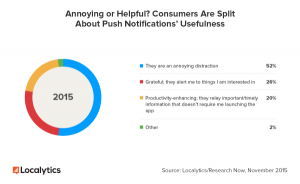 Let me get this straight right at the beginning. I believe that Nigel Farage, the leader of the United Kingdom Independence Party, frequently talks nonsense. His party’s policies seem to be made up on the spot and his relentless focus on immigration is a divisive force sending Britain backwards not forwards. As you may gather, I do not sympathise with his views one bit.
Let me get this straight right at the beginning. I believe that Nigel Farage, the leader of the United Kingdom Independence Party, frequently talks nonsense. His party’s policies seem to be made up on the spot and his relentless focus on immigration is a divisive force sending Britain backwards not forwards. As you may gather, I do not sympathise with his views one bit.
Yet, here in the UK, the local council elections yesterday showed that many people do believe in him and UKIP. Indeed, the party has gained 89 seats throughout England, where the coalition government parties, so far, have lost 200 seats between them. Clearly, many people prefer UKIP to the Government.
The majority of people, of course, do not support Nigel Farage. The vast bulk of the voters did not support UKIP; three-quarters of people voted for other parties.
Yet, whatever you think of him and his policies, you have to admit he is causing something of a disturbance. But why?
Discussions on radio and TV and in newspaper columns have revealed a common thread when talking to the public. You cannot misunderstand what Nigel Farage thinks. He is clear and passionate about his policies. He relentlessly bashes home his view and like it or not, you know what it is.
Unintended Consequences
Quotas are effective because most people are motivated by goals — particularly ones that are hard to reach. The problem is that once people achieve their goals — or meet the quota — they tend to slack off. A seminal study on New York City taxi drivers published in the Quarterly Journal of Economics in 1997 is a vivid illustration of this phenomenon. The research, conducted by Colin Camerer of the California Institute of Technology and Richard Thaler at the University of Chicago’s Booth School of Business among others, showed that higher pay does not lead workers to work more. In fact, they may work less.
The study suggests that taxi drivers have a daily income “target” and that, when fares pile up quickly — a drizzly day when commuters are desperate for a cab, for example, or a holiday like New Year’s Eve — drivers will reach their target more quickly and quit early. On low-wage days they drive longer hours to reach the target.
“On the face of it, it makes no sense,” says Bidwell. “Why work less on days where you can get a better fare? But it shows that we have within us [a goal] for what we feel is acceptable performance. We work hard to achieve the goal and less hard once we’ve achieved it.”
Recent research points to other unintended consequences of quotas. A study conducted in 2011 by Harikesh Nair of the Stanford Graduate School of Business and Sanjog Misra of UCLA’s Anderson School of Management suggests that quotas may, in certain situations, undercut profits. When one Fortune 500 company eliminated quotas, the study found, revenue increased by 9%, which translated to about $1 million of incremental revenues per month.
Incentives may spur effort, but they can also result in employees gaming the system. “People might start withholding effort,” says Adam Cobb, a professor of management at Wharton. “If you can easily meet your monthly quota, why should you try as hard once the goal is reached? Doing so may encourage the company to raise the quota, making your life harder.”
This is known as the “ratchet effect” — the perverse incentive that employees have to not surpass targets even if they could do so with no trouble. Employees who have already met the quota in a given compensation cycle may have an incentive to postpone additional sales; meanwhile, those who realize they have little hope of meeting their quota have an incentive to delay their effort to the next cycle. “In other words, people fall just short of the target for fear it’s going to be raised,” Meyer notes. “In the longer term, there are ways of subverting any target.”
Another problem with quotas is the “performance paradox,” a phrase coined in 1994 by Meyer and his colleague Vipin Gupta. The performance paradox describes the difficulty that managers have in knowing precisely how much time and effort their employees are devoting to their work. Without that knowledge, managers can only base compensation on workers’ output, not their input. “The company can’t tell the difference between gaming a measure and actually improving performance,” says Meyer.
Counting Clicks
In practical terms, “if the editors at The Oregonian want more stories, the journalists will write more stories,” Meyer notes. “If they are counting clicks, the journalists will alert their social networks and say: ‘Hey, beam me up.’ For better or for worse, they will find ways to meet those goals.”
Quotas might also cause some employees to commit fraud. “If you feel like it is unlikely you’ll get caught, why wouldn’t you?” adds Cobb. “If you fear losing income and/or your job, you are in a tough situation. This is how you feed your family.”
Even schoolteachers are not immune. As more and more schools began tying teachers’ pay to their students’ performance on standardized tests, scandals involving cheating by teachers and school administrators to boost student scores swept the country in 2011. In Atlanta, for instance, nearly 200 teachers and principals — including ex-schools chief Beverly Hall — were implicated in what is considered the biggest cheating scandal in the nation’s history. None of the teachers received jail time, but they were required to perform community service and, in certain cases, pay back bonuses that were linked to high test scores.
“We want schools to do a better job of teaching students writing, reading and math, so we have standardized tests to measure that,” says Maurice Schweitzer, professor of operations and information management at Wharton. “We’re sending the message to teachers that the other stuff is less important. So [not only do] the teachers teach to those tests, [but they have] incentives to cut corners and to cheat. People figure out the metric and do whatever it takes to meet it.”
A similar phenomenon has been observed within academia. A paper published in August of last year by Benjamin Edelman of Harvard University and Ian Larkin, who is also at Harvard but is this year a visiting professor at UCLA, found that academics repeatedly downloaded their own working papers from the Social Science Research Network (SSRN) — a website devoted to the dissemination of scholarly work in the social sciences and the humanities — to raise the papers’ reported download counts.
(The download count is not an explicit quota, but because every SSRN paper’s cumulative download count is posted prominently on each working paper’s webpage and in emails sent to SSRN members, there is good reason to believe that certain authors care greatly about this figure.)
“Authors engage in deceptive self-downloading to improve a paper’s visibility on SSRN, to obtain more favorable assessments of paper quality, and to obtain possible benefits for promotion and tenure decisions at those schools that consider download counts in tenure decisions,” according to the paper. Data suggests that authors are more liable to manipulate their papers’ download counts when a higher count vastly improves the visibility of a paper on the SSRN network.
There is no simple way to mitigate the negative effects of quotas. The best bet, says Cobb, is to find ways to motivate people without using financial incentives. Employers ought to design jobs so that employees find their work intrinsically motivating, he adds. They should give workers autonomy and let them use a wider array of skills. “Employers can also institute a strong company culture, whereby norms guide worker behavior,” he says. “In the face of uncertainty, we look for cues from those around us. It’s hard to design an incentive system that encourages production yet discourages cutting corners. With norms, a balance is much more likely. ‘This is what we do here: We work hard and we don’t cheat.’”
But even without concerns over cheating, managers should be wary of using quotas to align incentives. They may end up rewarding behavior they don’t necessarily want to reward. “Journalists at The Oregonian might discover that the only way to drive traffic to their stories is if they write about sex scandals, celebrities and other forms of sensationalism,” Cobb notes. “It could become [more like] reality TV.”
This article originally appeared in Knowledge at Wharton.
– See more at The Fiscal Times
(436)








